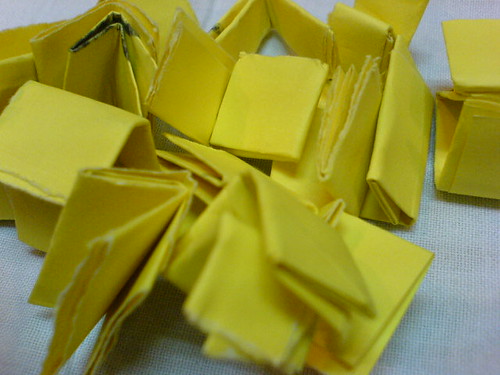I don’t remember the first time I read “The Lottery” by Shirley Jackson. It seems I’ve been haunted by that story forever: the dusty June center of town where the annual lottery is held, in my imagination a composition of all the Vermont towns I’ve lived in, and the blind cruelty of the populace a reflection of blind cruelty everywhere. The idea of “The Lottery” is that people can turn on one another for no reason other than that it’s what everyone else is doing, that we follow the crowd even when the request or demand that’s being made is patently wrong.
It’s a great story to use in a class of undergrads, because everyone likes to talk about how they would never, ever, succumb to peer pressure the way the townspeople in “The Lottery” do. I used the story early in my teaching career, with a Freshman Comp class into which I was pulling as much fiction as I could. The students read the story for their Thursday class, and that day I came into the room with a big bossy interdepartmental envelope, filled with tiny slips of paper.
Just like the slips of paper the townspeople choose from in “The Lottery.”
I told the class that due to over-enrollment in English classes, we’d been informed that one student in each English course would have to fail—regardless of the quality of the work they were doing. The decision would be made by randomly drawing lots. A couple of students rolled their eyes, and there was some grumbling, but as I passed the envelope, each lemming—I mean, student—went ahead and plucked out a slip of paper. I made it half-way round the room—about 15 students—without hearing any protest, until I finally came to a student in the nursing program. She was a little older than the others, and perhaps had more at stake. She wasn’t going easily. In fact, she wasn’t going at all, and refused to put her hand into the envelope, sitting with arms folded across her chest. Once she refused, the others refused.
 And then I walked back up to the front of the room. “Did anyone read the story for today?” I asked, and they nodded, shuffling out their papers and books. “What would you say the theme of ‘The Lottery is?’” I asked, and then, slowly, the realization dawned on them—there had been no Kafka-esque administrative edict. It was a game I’d made up to make the point Jackson had so much more eloquently made in her story.
And then I walked back up to the front of the room. “Did anyone read the story for today?” I asked, and they nodded, shuffling out their papers and books. “What would you say the theme of ‘The Lottery is?’” I asked, and then, slowly, the realization dawned on them—there had been no Kafka-esque administrative edict. It was a game I’d made up to make the point Jackson had so much more eloquently made in her story.
Despite the power of literature, the students had managed to read the story and still come to class quite willing to allow one of their own to be led to the slaughter.
I like to think that my ruse brought the point home even more deeply, but maybe it was an unnecessary bit of theater. Somehow this didn’t entirely shake my faith in either literature or humanity.
- Listen to A.M. Holmes read “The Lottery” and discuss it with the New Yorker‘s fiction editor, Deborah Treisman.
- Learn more about Shirley Jackson on her author website






